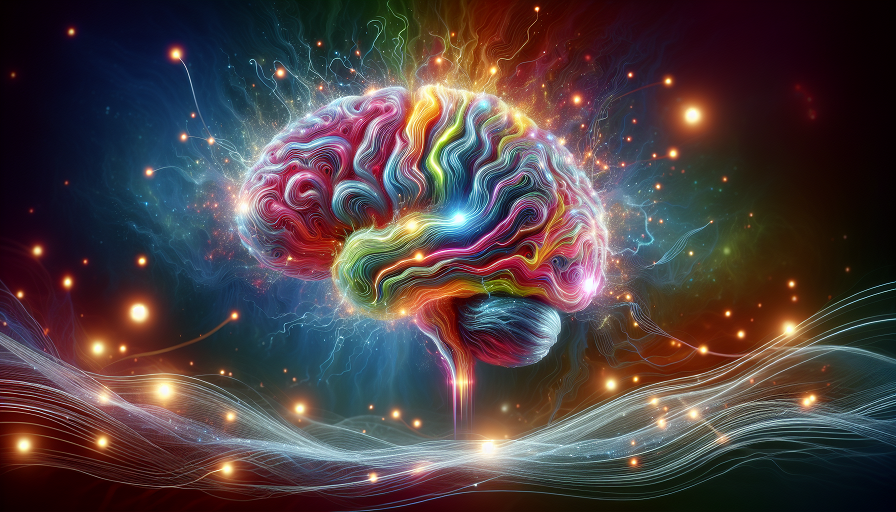
Depression isn’t just a matter of mood. It often brings a cloud of cognitive symptoms, including forgetfulness, brain fog, and slowed thinking. Even when emotional symptoms start to lift, memory can lag behind. This lingering cognitive drag can be frustrating and make full recovery feel out of reach. One natural option that’s generating interest for memory recovery is Lion’s Mane Mushroom. But can it really help restore memory after depression?
Contents
Understanding Memory Loss in Depression
Depression can impact the brain in deeply physical ways. It shrinks gray matter in key regions like the hippocampus—the part of the brain responsible for forming and retrieving memories. It also reduces levels of brain-derived neurotrophic factor (BDNF), a protein that supports neuron growth and plasticity.
The result? Even after your mood improves, you may still struggle to remember names, conversations, or where you left your keys. This cognitive residue can linger for weeks or even months unless active steps are taken to rebuild brain function.
What Is Lion’s Mane Mushroom?
Lion’s Mane (Hericium erinaceus) is a shaggy white mushroom that grows on hardwood trees and has been used in traditional medicine for centuries. In recent years, it’s gained attention in neuroscience circles for its ability to stimulate nerve growth factor (NGF)—a protein essential for the growth, repair, and protection of brain cells.
Its active compounds, hericenones and erinacines, appear to cross the blood-brain barrier and directly support the regeneration of neurons, making Lion’s Mane a unique player in the world of natural brain health supplements.
How It May Help Memory Recovery After Depression
Lion’s Mane supports brain repair and memory function through several mechanisms that are highly relevant to post-depression recovery:
- Stimulates neurogenesis: Lion’s Mane promotes the formation of new brain cells, particularly in the hippocampus, which is often damaged by depression.
- Enhances synaptic plasticity: By supporting NGF production, it helps strengthen the connections between neurons—critical for memory and learning.
- Reduces inflammation: Chronic inflammation in the brain is associated with both depression and cognitive decline. Lion’s Mane helps calm this process.
- Improves mental clarity: Users often report reduced brain fog and improved recall with consistent use.
In short, Lion’s Mane doesn’t just mask memory issues—it may help reverse some of the underlying damage caused by depression.
What the Research Shows
While human studies are still emerging, early research is promising. A small 2009 study in older adults with mild cognitive impairment found that those who took Lion’s Mane for 16 weeks showed significant improvements in memory compared to a placebo group.
Animal studies have shown that Lion’s Mane can reverse memory deficits caused by depression-like states. In rodent models, it enhanced hippocampal neurogenesis and improved performance on memory tasks even after stress-induced brain changes.
Though these studies didn’t focus exclusively on post-depression memory recovery, the parallels are strong. The damage and mechanisms involved overlap, and the regenerative properties of Lion’s Mane directly target the brain areas most affected by depression.
Who Might Benefit?
Lion’s Mane may be particularly helpful for:
- People recovering from depression with lingering cognitive symptoms
- Those experiencing brain fog or memory lapses after emotional burnout
- Older adults with depression-related cognitive decline
- Anyone seeking to rebuild mental clarity and memory function naturally
It’s not a replacement for therapy or medication when needed, but it may support the brain’s healing process alongside other recovery strategies.
How to Use It
Typical doses range from 500 to 1500 mg per day, often taken in capsules or as a powdered extract. For best results, look for products that specify active hericenone and erinacine content. Consistency is key—most benefits build gradually over 4 to 8 weeks of daily use.
Some people combine Lion’s Mane with other supportive practices like journaling, mindfulness, or cognitive exercises to reinforce brain recovery.
Is It Safe?
Lion’s Mane is generally considered safe and well-tolerated. Side effects are rare but may include mild digestive upset or skin sensitivity in some users. If you have a mushroom allergy or are taking medications for mood, consult a healthcare provider before starting.
The Bottom Line
Yes—Lion’s Mane Mushroom may help recover memory after depression by stimulating brain repair, supporting neuron growth, and improving cognitive clarity. It’s not an instant fix, but for those emerging from the fog of depression, it may offer a gentle, steady path back to clearer thinking and stronger recall.
If you’re ready to rebuild—not just mood, but memory—Lion’s Mane could be a powerful addition to your recovery toolkit.

